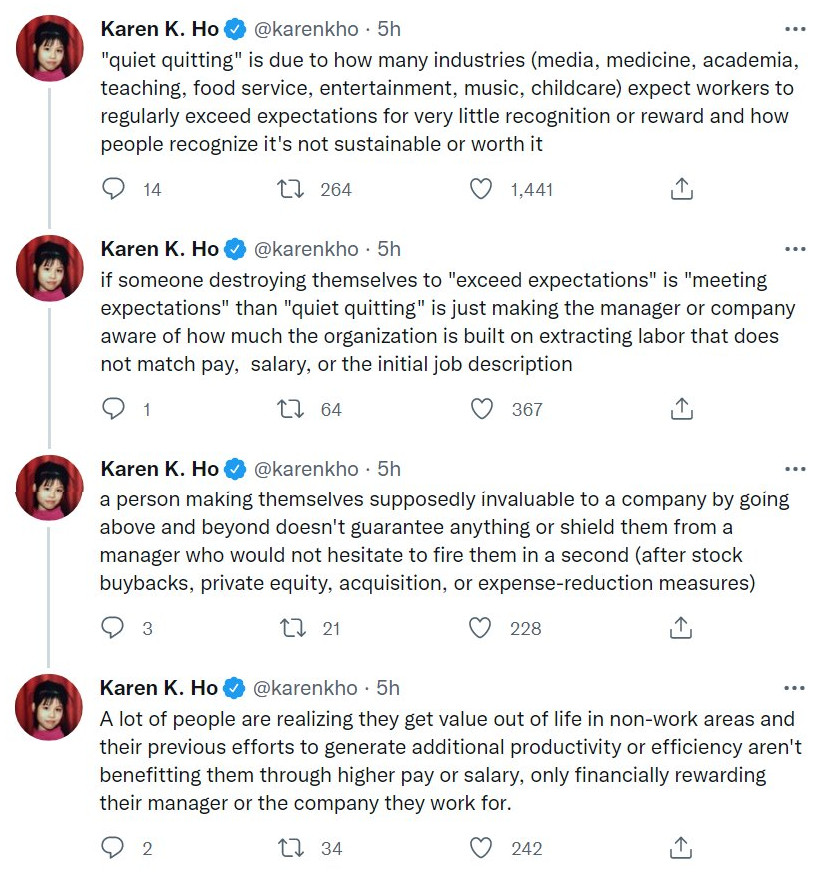Recently, within the last two weeks, on a day I went into Diamond’s offices, I heard the morning deejay talking about “quiet quitting.” I wasn’t familiar with the term, and when the deejay came back to it and explained it was “the new word trend,” what he described was people not quitting their jobs but rather people doing what their job description said and punching out after eight hours, not going above and beyond.
Today, a friend shared this Twitter thread that explains it better:

I relate.
Published by Allyn Gibson
A writer, editor, journalist, sometimes coder, occasional historian, and all-around scholar, Allyn Gibson is the writer for Diamond Comic Distributors' monthly PREVIEWS catalog, used by comic book shops and throughout the comics industry, and the editor for its monthly order forms. In his over fifteen years in the industry, Allyn has interviewed comics creators and pop culture celebrities, covered conventions, analyzed industry revenue trends, and written copy for comics, toys, and other pop culture merchandise. Allyn is also known for his short fiction (including the Star Trek story "Make-Believe,"the Doctor Who short story "The Spindle of Necessity," and the ReDeus story "The Ginger Kid"). Allyn has been blogging regularly with WordPress since 2004.
View more posts
